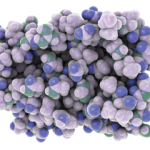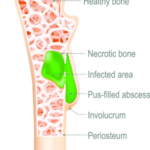Upadacitinib, as a tablet and oral solution, is now FDA approved to treat children age 2 years and older with active polyarticular juvenile idiopathic arthritis or psoriatic arthritis.


Upadacitinib, as a tablet and oral solution, is now FDA approved to treat children age 2 years and older with active polyarticular juvenile idiopathic arthritis or psoriatic arthritis.

Mery Deeb, MD, Taro Minami, MD, Michael Stanchina, MD, Elias Jabbour, MD, & Jan Karczewski, MD |
Shrinking lung syndrome (SLS) is a rare cause of dyspnea that has been most commonly described in patients with systemic lupus erythematosus (SLE), but is also found in systemic sclerosis, Sjögren’s disease and rheumatoid arthritis. Shrinking lung syndrome is characterized by a restrictive pattern on lung spirometry, despite normal lung parenchyma, and an elevated diaphragm.1…

“As a resident, [I] felt pretty terrible when [we had] a very sick child and the teams [couldn’t] agree on what to do,” said Lauren Henderson, MD, MMS, on an episode of ACR on Air. She discussed the importance of collaboration across specialties in the identification and treatment of macrophage activation syndrome (MAS).

Reducing the time to diagnosis and initiation of appropriate treatment is paramount to intercept inflammatory damage in patients at the onset of rheumatic disease. But those targets can be delayed by provider shortages and other barriers to care. Since last June, Remission Medical, a virtual rheumatology clinic, has been partnering with Mayo Clinic to find…

Kubra Bugdayli, MD, Ahmed Eldaboush, MD, Sanjana Aggarwal, MBBS, & Bonnie Bermas, MD |
Adult-onset Still’s disease (AOSD) is a systemic autoinflammatory disorder characterized by persistent fever at regular intervals, arthralgias or arthritis, rash, sore throat and neutrophilic leukocytosis.1,2 Significant elevation in ferritin levels is characteristic and tends to correlate with disease activity. Additional clinical features may include myalgias, lymphadenopathy, hepatosplenomegaly, serositis, myocarditis, abnormal liver function tests and development…

Katie Robinson |
Current knowledge of receptor-ligand interactions, cell signaling, and transcriptional regulation derive from studies of type I interferon. The design of novel therapeutics is informed by the advances in investigation of type I interferon, with the potential for important impacts on patient management.

In this ACR Convergence 2023 session, experts offered guidance on a selection of diagnostic & treatment challenges rheumatologists may encounter.

SAN DIEGO—As part of a panel on systemic autoinflammatory diseases (SAIDs) at a Nov. 15 scientific session of ACR Convergence 2023, Sivia Lapidus, MD, shared context and insights on the therapeutic management of patients with these conditions. The Spectrum of SAIDs SAIDs encompass a broad swath of individually rare disorders driven by innate immune responses…

SAN DIEGO—Viral infections are a common cause of acute arthritis and, in general, tend to be short lived and are not usually associated with significant articular inflammation. Due to the prevalence of various viral infections across the globe, any patient with signs of early inflammatory arthritis (i.e., symptoms that have not yet lasted six weeks) should be evaluated for a possible infectious etiology, said Dr. Leonard Calabrese in the Review Course at ACR Convergence 2023.

SAN DIEGO—Marcela Ferrada, MD, who most recently was on faculty with the National Institutes of Health (NIH), Bethesda, Md., discussed relapsing polychondritis (RP), a condition that she herself has.